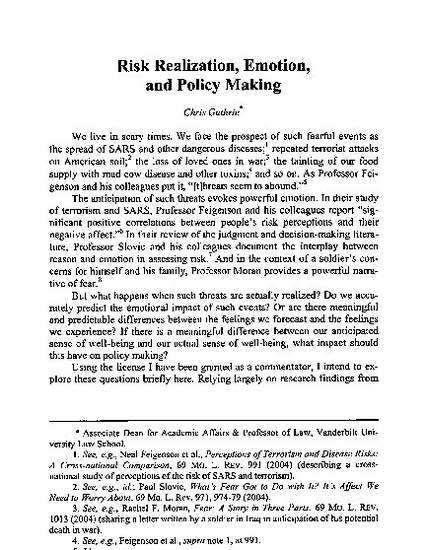
- decision making,
- policy sciences,
- emotions,
- terrorism,
- risk perception
In their study of terrorism and SARS, Professor Feigenson and his colleagues report "significant positive correlations between people's risk perceptions and their negative affect." In their review of the judgment and decision-making literature, Professor Slovic and his colleagues document the interplay between reason and emotion in assessing risk. And in the context of a soldier's concerns for himself and his family, Professor Moran provides a powerful narrative of fear. But what happens when such threats are actually realized? Do we accurately predict the emotional impact of such events? Or are there meaningful and predictable differences between the feelings we forecast and the feelings we experience? If there is a meaningful difference between our anticipated sense of well-being and our actual sense of well-being, what impact should this have on policy making? Using the license I have been granted as a commentator, I intend to explore these questions briefly here. Relying largely on research findings from the emerging literature on "affective forecasting," I will argue that we are likely to overestimate the impact of these negative life events--even traumatic events--on our enduring sense of well-being. If true, this empirical finding puts policy makers in an awkward position because they are generally called upon to make policy in anticipation of, rather than in response to, such events. Nonetheless, I will argue that policy makers should take into account our tendency to overestimate the emotional impact of such events.
Available at: http://works.bepress.com/chris-guthrie/3/
